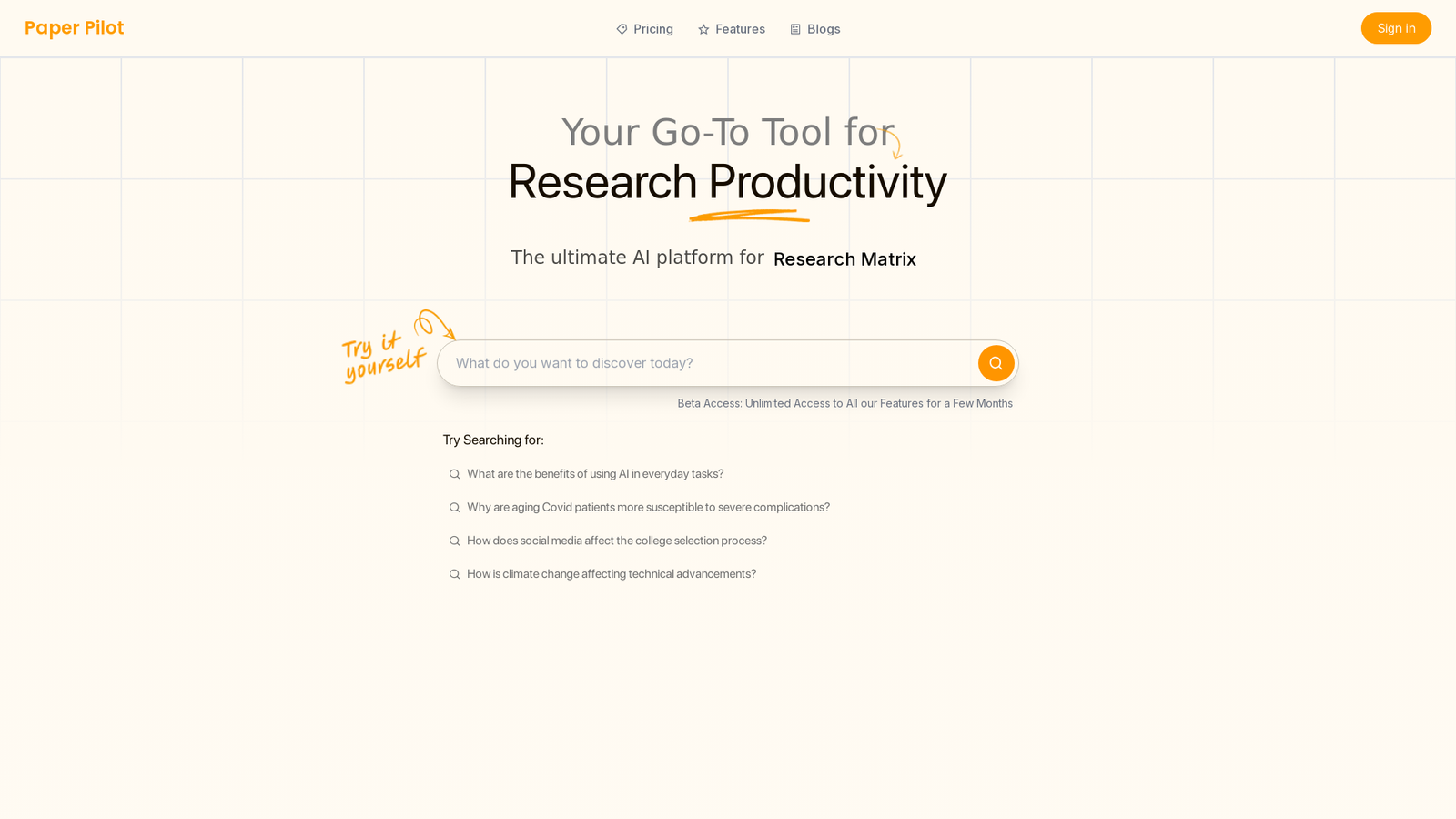AI for Academic Research: Paper Pilot Delivers Actionable Insights with AI Audio Enhancement
AI for academic research is revolutionizing how researchers process information. Enter Paper Pilot, a groundbreaking research productivity tool designed to streamline workflows and unlock actionable insights. Paper Pilot empowers academics and researchers by simplifying the process of summarizing research papers, extracting key findings, and organizing information through interactive research boards. Leveraging the power of AI, Paper Pilot generates concise summaries that capture core ideas, identifies critical insights from complex texts, and offers engaging audio explanations to simplify challenging topics. This innovative tool also provides an interactive chat feature for instant answers to specific research questions and utilizes mind maps to visualize key concepts and their interrelationships, enhancing comprehension and facilitating deeper understanding.
Pricing
Paper Pilot offers three pricing tiers: Free, Student, and Pro. The free plan provides limited access to summaries (20/month), full explanations (10/month), basic research boards, and a restricted chatbot. The Student plan costs $84 annually ($7/month) and unlocks unlimited summaries and explanations, advanced research boards, a basic writing assistant, and enhanced chatbot access. Finally, the Pro plan at $129 annually ($11/month) includes all features of the Student plan plus unlimited research boards, advanced writing assistance, access to premium papers (availability dependent), and advanced analytics. Key Points: Free Plan: Limited summaries, explanations, basic boards, restricted chatbot. Student Plan: $84/year ($7/month). Unlimited summaries & explanations, advanced boards, basic writing assistant, enhanced chatbot. Pro Plan: $129/year ($11/month). All Student plan features + unlimited boards, advanced writing, premium paper access (if available), and analytics.
Subscription
$0


 Special offer for AI Owners:
Promote your AI tools with up to 50% off.
Special offer for AI Owners:
Promote your AI tools with up to 50% off.  Skip to content
Skip to content



















 Boost Your Brand
Boost Your Brand Connect & Engage
Connect & Engage Shape the Future
Shape the Future
How would you rate Paper Pilot?